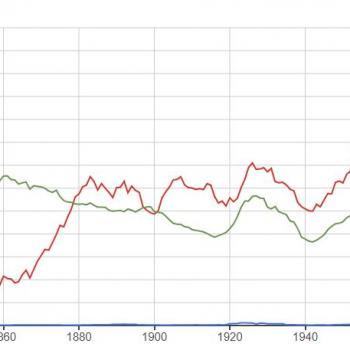The Atlantic has an article out this week called “How Meditation Works.” It’s very good in terms of an overview and well worth a read. One tiny caveat, though, is all-too-common typo (replacing ‘meditation’ with ‘mediation’):
There are different forms of mediation practice — among them Transcendental Meditation or “TM” (a Hollywood-approved technique heralded by David Lynch), Qigoing (a Chinese form of “energy healing”), and even yoga — all of which carry their own array of benefits; however mindfulness meditation is one of the more widely used, and most heavily researched methods.
Two years ago researchers at Justus Liebig-University in Giessen, Germany and Harvard Medical School integrated decades of existing research into a comprehensive conjectural report, which explains the various neurological and conceptual processes through which mindfulness mediation works (and which recent studies have continued to affirm.)
A quick search of this blog finds two cases of ‘mediation’, one in a guest post from 2009, “it took Buddha six years of silent mediation under that Bodhi tree….” and the other is in the context of discussing Hegelian philosophy:
SUBLATE (aufheben). Also translated as ‘supersede’ and ‘sublimate’. It incorporates the senses of (i) to cancel out, abolish, do away with, or reverse (a judgement), (ii) to keep or preserve, and (iii) to lift or raise up. Sublation connotes progress, by virtue of (i)-(iii): when something is sublated, it is not done away with but retained and preserved in the higher product which supersedes it. Sublation involves mediation and (determinate) negation. Hegel speaks of both concepts and things as sublated.
And as far as I know, it’s Qigong, not Qigoing….
Moral of the story? Typos abound, even for the ‘big boys’ (and girls) over at the Atlantic.
As with so much, a little mindful mediation and they can be swept away, like so many of the cobwebs of our minds.












